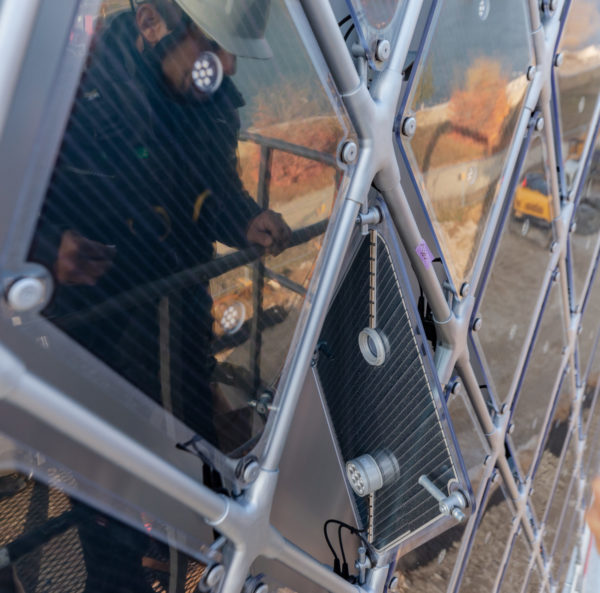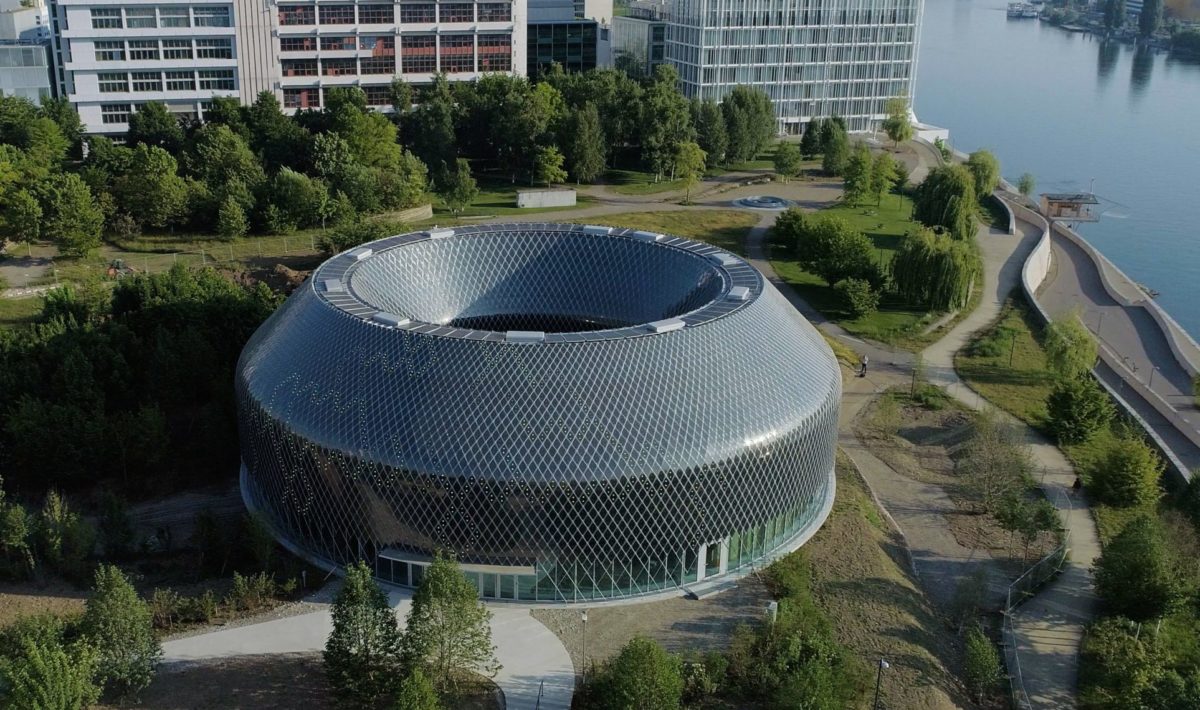Novartis, a Swiss health care company, has inaugurated its new conference center in Basel, which features a building-integrated photovoltaic (BIPV) facade based on organic solar modules and LEDs.
The company said the zero-energy facade of the Novartis Pavillon plays a symbolic role in the architecture, as the LEDs are used to screen the works of three international artists, Daniel Canogar, Esther Hunziker and Semiconductor. The PV installation has a capacity of 36 kW and features 10,680 diamond-shaped solar modules provided by France-based organic PV module maker Asca, a unit of Armor solar power films. The system covers a surface of 1,333 square meters.

Image: Novartis
The facade was designed and engineered by iart, a Swiss studio for media architectures, in collaboration with architects AMDL Circla and Michele De Lucchi. “The arrangement of the solar modules on the dome-shaped Novartis Pavillon enables the measurement of the electricity produced in all directions,” iart said. “Data collected during the first few months of operation shows that the façade produces enough power to display text in the daytime – when the exhibition is open – and digital art animations for up to two hours after sunset.”
Armor said its solar modules can achieve a 26% efficiency in low light environments. Currently, its solar technology is mainly used to supply electricity to small connected objects indoors, in environments where the light is low (from 200 lux), such as temperature sensors and geolocation trackers.
“Their design and physical properties make these organic solar modules ideal for use on the dome-shaped Novartis Pavillon, as they can be produced in various shapes, are bendable, translucent, and extremely light-sensitive,” iart said. “Which means they can also be installed in spots not ideally oriented towards the sun.”
This content is protected by copyright and may not be reused. If you want to cooperate with us and would like to reuse some of our content, please contact: editors@pv-magazine.com.




2 comments
By submitting this form you agree to pv magazine using your data for the purposes of publishing your comment.
Your personal data will only be disclosed or otherwise transmitted to third parties for the purposes of spam filtering or if this is necessary for technical maintenance of the website. Any other transfer to third parties will not take place unless this is justified on the basis of applicable data protection regulations or if pv magazine is legally obliged to do so.
You may revoke this consent at any time with effect for the future, in which case your personal data will be deleted immediately. Otherwise, your data will be deleted if pv magazine has processed your request or the purpose of data storage is fulfilled.
Further information on data privacy can be found in our Data Protection Policy.